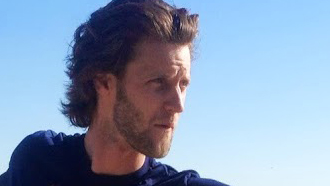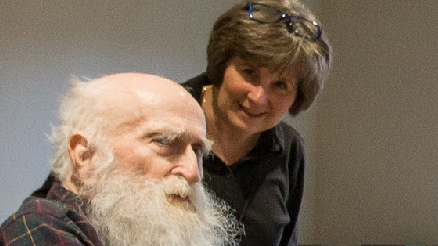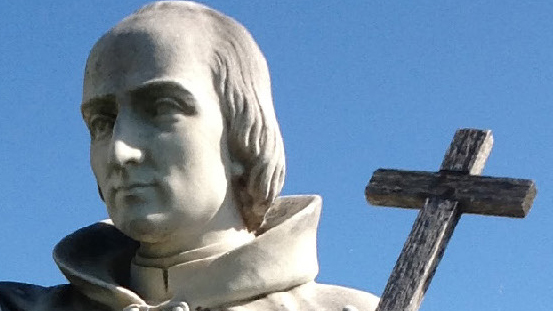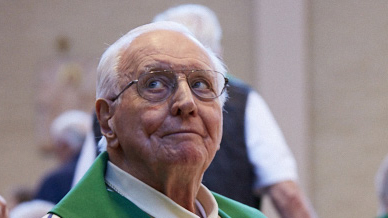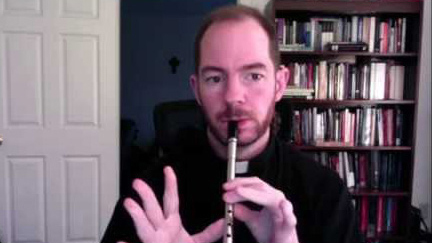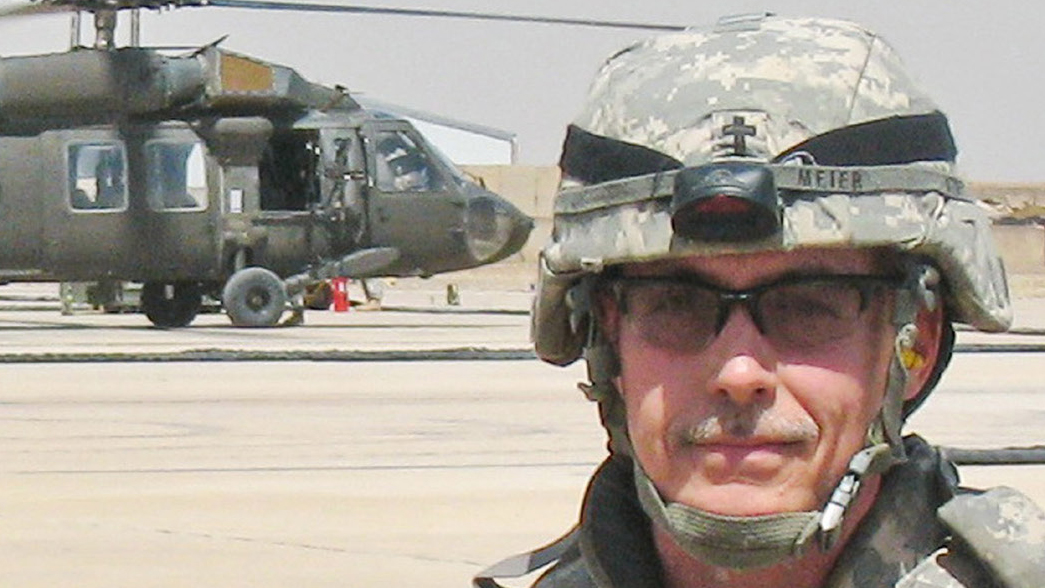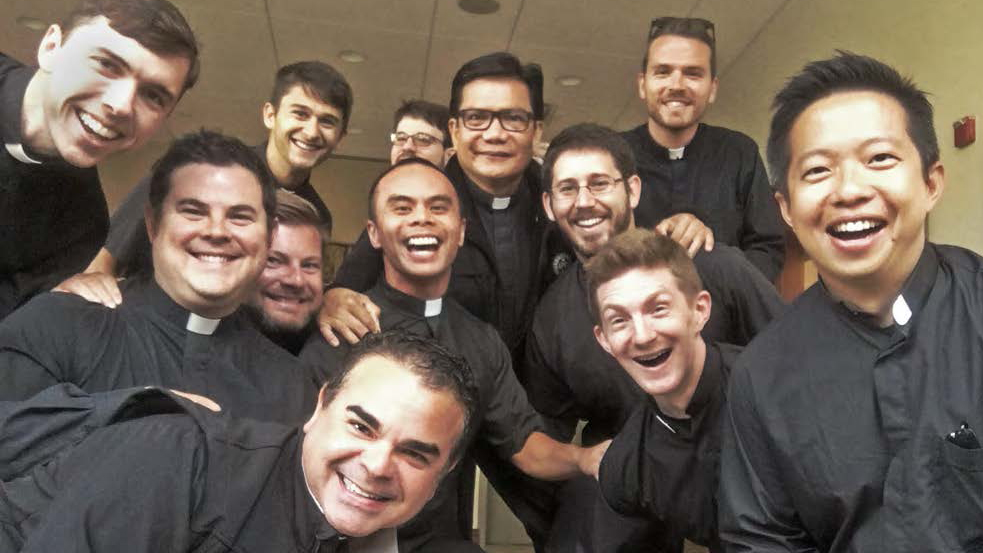
Left: Jesuit scholastics and brothers in the first studies program in 2017
Before he decided to become a Jesuit, Emanuel Werner, SJ, a scholastic in the first studies program at Fordham, was a licensed clinical counselor at a psychiatric hospital. He says a general principle in psychology is to try not to make more than one major life change in a year.
For Jesuits moving from the novitiate to first studies, however, they make three.
“You need to prepare yourself for a major transition in your life when you move on to First Studies,” says Werner. “You make a major life commitment in your first vows, you change cities, and then you begin a new way of life. There’s a lot changing right away”
“First studies is an academic program where a Jesuit must complete 30 credit hours or more in philosophy and six in theology,” says Fr. Tim Lannon, SJ, “It’s also very formational. They live in Jesuit houses and formation programs to help them fully develop as Jesuits.”
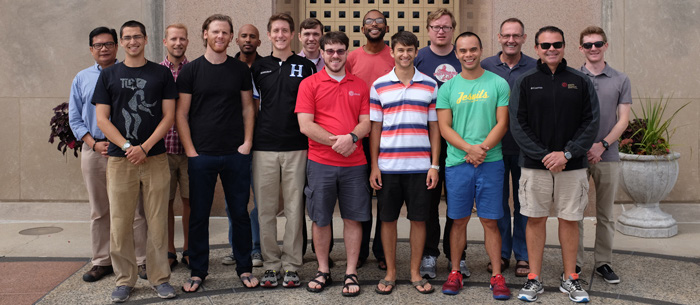
Jesuits in the first studies program at Loyola University Chicago.
Fr. Lannon is the Midwest Jesuits’ Provincial Assistant for formation. One of his responsibilities is to work with Jesuits who are about to complete their time as novices to recommend to the provincial where the novices should spend their next few years for first studies.
“I talk to them about their desires for the future as Jesuits and what their interests might be, their academic background and where they think they want to go regarding listening to God’s call for them about first studies,” says Fr. Lannon. “Most will say ‘I’m available to go anywhere.’”
Anywhere can be one of four sites in North America: Loyola University Chicago, Fordham University in New York City, St. Louis University, and, rarely, Regis College in Toronto. After meeting with the novices, Fr. Lannon consults with the novitiate staff, spends time in prayer, provides recommendations to the provincial, then discusses placement with the provincial assistants for formation from the other provinces in the United States. After all of the consideration, a decision is made by the provincial on where to mission the Jesuit.
Arturo Carrillo, SJ, was missioned to St. Louis University in 2017. In his first year as a Jesuit scholastic, he says first studies can be very different from the novitiate.
“At the novitiate you don’t have electronics such as a laptop or cell phone, so when you get into your studies program you get all this technology back, you’re out in the real world a little more,” says Carrillo. “You start to see what really matters and what is really important.”
When back in the “real world,” those in first studies will take multiple graduate-level classes during the semester while adjusting to a new location and a renewed purpose in their formation. The intense classes and study can fill up a schedule quickly, so, in addition to attending Mass daily, they must learn how to balance their prayer life they developed in the novitiate to their schedule.
“I like to make sure the basics of self-care and well-being are taken care of,” says Werner. “I try to get enough sleep, I try to exercise at least every other day, if only for thirty minutes to an hour. A prayer life is essential. You have to pick your spots and figure out how is it that I will get at least 20 minutes of that kind of silence.”
The program, however, is both a rewarding and essential part of formation. The studies give the Jesuit a base in philosophy before they move on to regency, the next stage in formation.

Return to the Jesuits Magazine Spring 2018 Index
